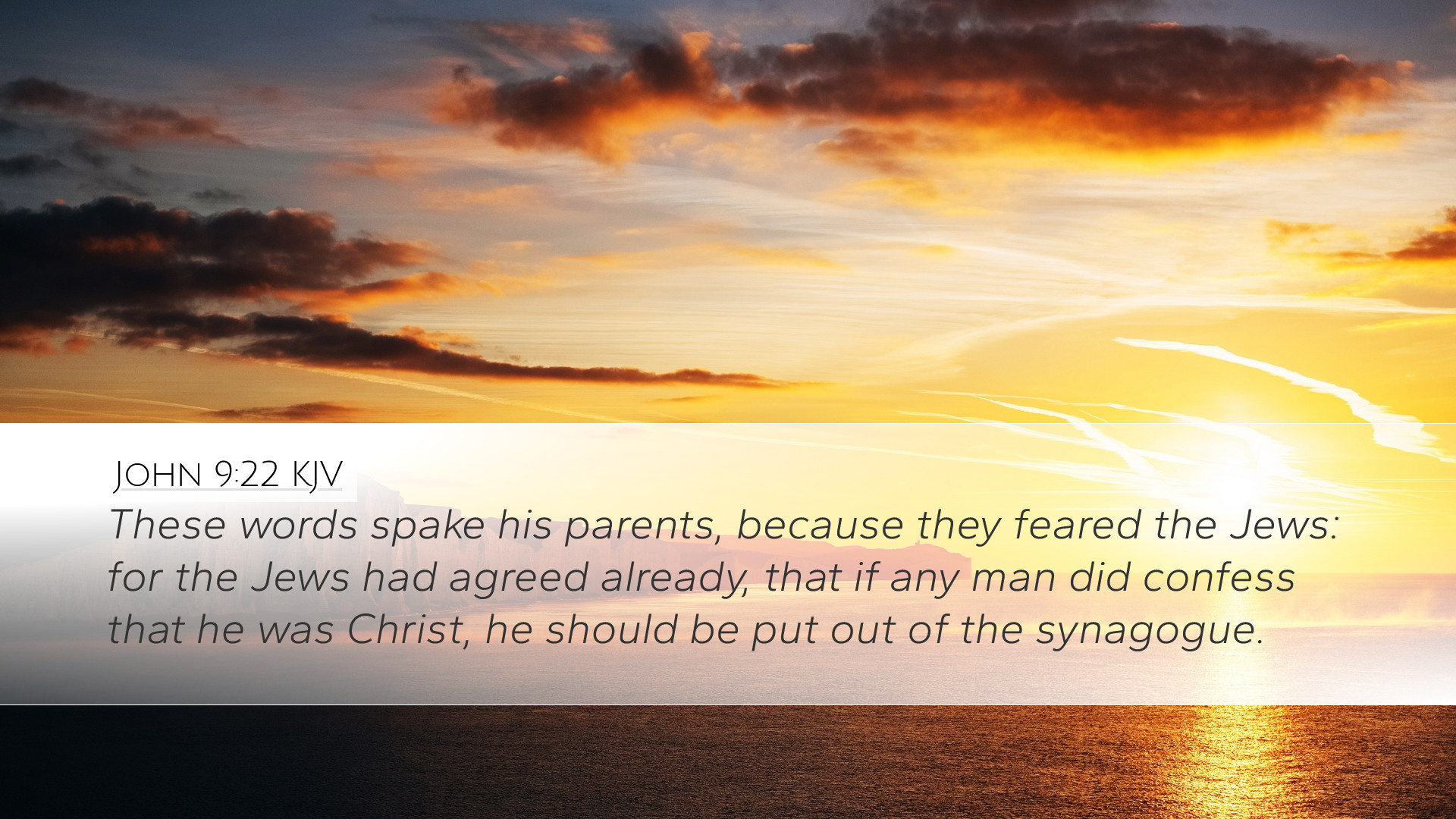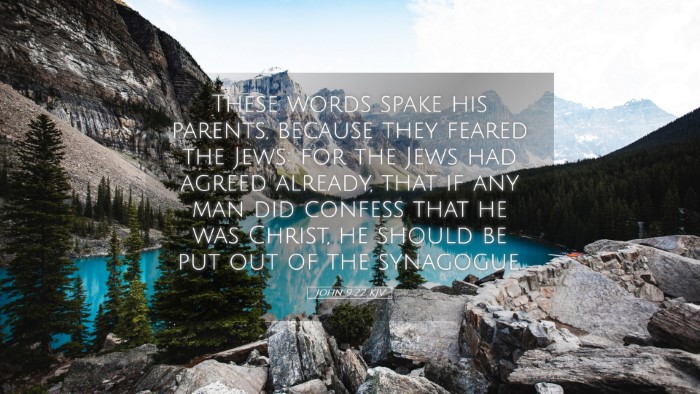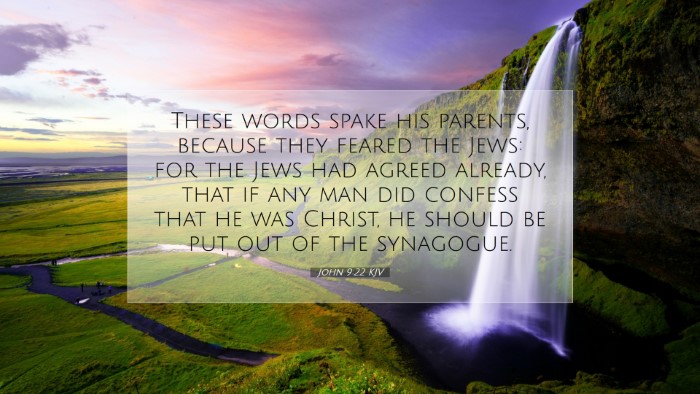Commentary on John 9:22
Verse Reference: John 9:22 - "His parents said these things because they feared the Jews; for the Jews had already agreed that if anyone should confess Jesus to be the Christ, he was to be put out of the synagogue."
Contextual Background
The Gospel of John is distinct in many of its themes and emphases, particularly regarding the identity of Jesus as the divine Son of God. Chapter 9 presents the miraculous healing of a man born blind, which raises significant theological and social questions. This particular verse highlights the tension between emerging faith in Jesus and the sociopolitical pressures exerted by religious authorities.
Insights from Commentaries
Matthew Henry's Commentary
Matthew Henry notes that the fear of the parents indicates the pervasive influence and authority of the Jewish leaders during this period. They understood that acknowledging Jesus as the Messiah could lead to their exclusion from the religious community, which was unthinkable in that sociocultural context. This reaction is reflective of a broader fear of persecution that often accompanies genuine faith in contentious environments.
Henry further emphasizes the cost of discipleship, highlighting that true faith often leads to conflict with societal norms and expectations. He urges believers to weigh the value of their relationship with Christ above societal acceptance, indicating that fear can be a barrier to true confession.
Albert Barnes' Notes on the Bible
Albert Barnes provides a detailed look at the implications of being "put out of the synagogue." He asserts that this excommunication was not merely a social ostracism but a severe penalty that denied individuals access to religious life and community. For the Jews, the synagogue was the heart of worship and social interaction.
Barnes argues that the fear in the hearts of the blind man’s parents is both understandable and tragic. Their reluctance to openly acknowledge Jesus reflects the struggles many face when faith leads them into conflict with the dominating beliefs around them. They are presented with the choice between their personal beliefs and their social identity, a dilemma that resonates with many in contemporary society.
Adam Clarke's Commentary
Adam Clarke echoes the sentiments of the previous commentators, noting that the term "the Jews" here refers specifically to the Jewish religious leaders who had made a formal decree against anyone professing Jesus as the Messiah. Clarke draws attention to the fact that such an edict underscores the desperation of the religious leaders who felt threatened by Jesus’ growing popularity and divine authority.
Clarke elaborates on the cultural implications of acknowledging Jesus, suggesting that the parents’ fear was rooted not only in personal ramifications but also in a collective consciousness among the Jews who saw Jesus as a heretical figure. They could not afford to jeopardize their standing in an already tense religious climate.
Theological Implications
This verse invites deeper theological reflection on the nature of faith and the cost of discipleship. The reluctance of the parents to affirm their son’s faith in Jesus can be seen as a reflection of a common human condition: the struggle between fear and faith.
- Faith vs. Fear: Many believers today also grapple with fear in the face of societal pressures. This verse challenges individuals to confront their own fears and the potential costs of discipleship.
- Community and Belief: The exclusion from the synagogue represents a loss of community and belonging, which is a significant aspect of faith communities today. This raises questions about the nature of belonging and acceptance in the church.
- Jesus as the Christ: The acknowledgment of Jesus as the Messiah is central to Christian faith, yet it often invites scrutiny. This verse illustrates the stark contrast between the recognition of His identity and the social ramifications of that recognition.
Practical Applications
For pastors, students, theologians, and Bible scholars, John 9:22 serves as a poignant reminder of the complexities of faith in a diverse and often hostile world.
- Courageous Confession: A call to openly identify with Christ despite external pressures; highlighting the importance of supporting one another in faith journeys.
- Creating Inclusive Communities: Encouraging local churches to be welcoming spaces for those grappling with faith and acceptance.
- Addressing Fear in Faith: A challenge to address the barriers created by fear in congregational life and to foster environments where believers can boldly proclaim Jesus as the Messiah.
Conclusion
John 9:22 encapsulates a significant moment of struggle within the narrative of Jesus’ ministry, shining a light on the eternal conflict between faith and societal acceptance. The observations drawn from public domain commentaries provide valuable insights into understanding the weight of this verse. Engaging with this text prompts contemporary believers to consider their own positions in relation to the truths of the Gospel, potentially leading to personal and communal transformation in the face of fear, where faith can flourish amidst adversity.


